 newsitems
newsitems  CoE Constitutional Law Experts President Buquicchio to EuroFora on UK Electoral Law Change debate
CoE Constitutional Law Experts President Buquicchio to EuroFora on UK Electoral Law Change debate
CoE Constitutional Law Experts President Buquicchio to EuroFora on UK Electoral Law Change debate
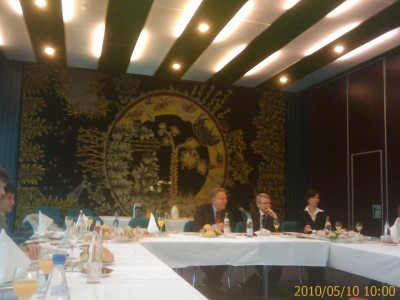
While urgent talks are still going on in the UK today between political parties on the crucial issue of efforts to make a deal on a Coalition Government or other formula of 2, may be 3 parties’ support, after the recent Elections resulted in a “hung” Parliament, despite Conservatives’ lead, followed by Labour, LibDems and smaller parties, due to the method of repartition of seats in the current Electoral system, CoE’s Constitutional Law Experts Committee President, Gianni Buquicchio, who has 20 years of Experience in Democracy and Electoral Laws’ issues throughout CoE’s 47 Member States and even for several States in various Continents of the World, replying to an “EuroFora” question, said that it would be wise to consider ways to change UK’s Electoral Law.
“EuroFora”, after observing that the latest elections, despite Conservatives’ lead, not only left a “hung” Parliament, not allowing them to form a Majority Government alone, but also resulted in an apparently strange distribution of Seats among various Political Parties (f.ex. the Labour taking much more seats than LibDems even if there was only a Short difference of Votes between them, while also among Smaller Parties, f.ex. UKIP of Farage, the MP who had a tragic air accident the very day of the vote while flying at London, despite arriving 4th, with almost 1 million votes, nevertheless took No seat at all, contrary to other smaller parties, which, on the contrary, took 6 or 7 MPs), asked Bucquicchio if he would advise a change in UK’s Law, or not, and how.
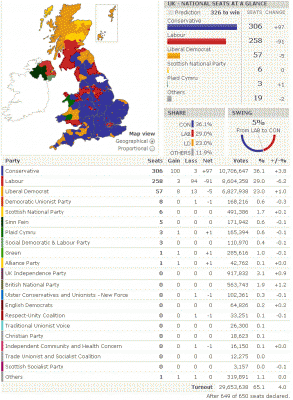
- “In Great Britain, there is currently a strong pressure from British Citizens who support a Reform of the Electoral System”, the President of CoE’s Top Experts in Constitutional Law observed in reply to “EuroFora”s question.
- It’s true that “the (pre-existing UK Electoral) System had provided good results for a long time” in the Past, (i.e. before a recent partial modification added by former Labour Prime Minister Blair, and until the latest, May 2010 Elections), Buquicchio also noted.
- “But, perhaps the Time has come to modify it” somehow, “in order to avoid such kind of results” as those that you mentioned now, CoE’s Head of Experts on Democracy advised in conclusion.
Speaking earlier as a matter of General Principle, in a meeting with Strasbourg’s permanent European Press Correspondents, including “EuroFora”, Buquicchio had added that even in “Old” Democracies, as EU’s Western Countries, sometimes, Socio-Political Developments and/or New Challenges might make it preferable to bring in some changes in some key parts of their Constitutional Law in order to better adapt it to realities.
Carefully, however; the Venice Commission’s President left Open another crucial question : That of what kind of change could and/or should be brought, in his view, and/or of that of the entire Venice Commission, in the UK’s Electoral Law among various possible systems, levels, grades and/or variations.
As Bucquicchio said earlier, in relation to another Country, “any possible logical system (of Electoral law) is good, without establishing any preference from our (CoE’s) point of view, if it ensures a Governemental Stability”.
- “Main practical advantages of the (CoE’s) Venice Commission is its Independence (since its Members, even if appointed by CoE’s 47 Member States, are independent during their work), its Flexibility (since its Statute allows it to deal with a large area of issues), and its Reactivity : - We may respond to questions for Legal Advise fast enough, in cases of Urgency it can be done even by Phone, in a few Days of even in Hours”, his experienced President added.
The last time UK had a Conservatives – Liberals Coalition, it was under the famous Lloyd George and Winston Churchil Government, who had succeeded to both win the 1st World War, to create the British “Welfare State” and to invest in the Modernisation of British Industry both in Defence and Civil “Dual” Innovative High Technologies.
Despite being for a long time very Popular among Brittish People, however, the Lloyd George – Winston Churcchil Coalition Government suddenly fell after a Crisis triggered by disagreements about its leaders’ will to take a Strong stance vis a vis Turkey’s threats against the Brittish Soldiers who were safeguarding the Dardanelles International Straights after the Armenian Genocide and the Massacre of Greeks in Smyrne/Izmir etc. The Opposition came mainly from Overseas, when Commonwealth’s Member Canada refused to back the Brittish Government’s strong position vis a vis Turkey, (which had been at many concrete occasions a frequent stance taken by Winston Churchil himself, a leading spiritual “Father” of the creation of the CoE in Strasbourg after 2nd World War, which was won mainly under USA’s and Russia’s leaderships, unlike of the 1st WW, which had been mainly settled among Europeans). Thus, the last Conservatives – Liberals UK Coalition Government coincided also with the last great period for England and the rest of Europe, afterwards outpaced by the USA.

------------------
The 2005 UK Elections' precedent
-----------------------------------In order to take action, CoE's Venice Commission "cannot move at its own Initiative", unless it's an International Organisation or a Member State which asks us to do so, as its President, Gianni Buquicchio, confirmed to "EuroFora". But it can also act according to demands eventually made by the ECHR and/or CoE's Parliamentary Assembly.
As far as the UK is concerned, a CoE Assembly Investigation was made earlier and a Report adopted after Conservatives, Liberals and other British Citizens complained about Electoral Fraude allegedly provoked by Labour officials at the previous, 2005 UK Elections, which were won my a tiny, narrow margin of votes by the Blair Labour outgoing Government. To put it in a nutshell, CoE Assembly's previous Report on the 2005 UK Electoral Fraude allegations, found several Shortcomings and advised practical ameliorations, but its Chair, a former Socialist German MEP, was unable to tell what Percentage among the votes casted back on 2005 UK Elections were irregular, as she had said in reply to an "EuroFora" question.The point was obviously important, since the current Labour Government has notoriously stayed into office with a small difference of less than only one per cent (1%) of votes more than what the Conservatives had got...
And as far as the ECHR might be also concerned, this time, onthe 5th of May 2010, it's well known that many British Citizens strongly complained because they were reportedly hindered to vote, allegedly due to practical issues, even if they waited in vain, sometimes for more than an Hour, at a queu before the Voting Stations closed.
The UK has been a Member of CoE’s Venice Commission more than 50% of its lifetime (which will celebrate its 20th Anniversary since it was created immediately after Berlin Wall’s Fall on 1990, at the beginning of June 2010), i.e. since its 1st decade of the 1990ies.
A CoE PanEuropean Conference of Electoral Management Bodies on "Putting the voter first at elections", organised by the Venice Commission and the UK's Electoral Commission is scheduled for the 22-23 of June in London.
Currently, the Venice Commission has 57 Member States (from the CoE and elsewhere, f.ex. even frrom America (f.ex. Canada, Mexico, Brasil, etc), Asia (f.ex. Korea) or Africa (f.ex. Morocco, Algeria, Tunisia, South Africa etc), and 7 Observer States (USA, the Holy See, Japan, etc), while EU Commission, OSCE and other European or International Organisations participate in its work.
***
Main Menu
Home Press Deontology/Ethics 2009 Innovation Year EU endorses EuroFora's idea Multi-Lingual FORUM Subscribers/Donors FAQs Advanced search EuroFora supports Seabird newsitems In Brief European Headquarters' MAPs CoE Journalists Protection PlatformBRIEF NEWS
- 00:00 - 02.06.2021
- 00:00 - 18.10.2020
- 00:00 - 19.06.2020
- 00:00 - 18.05.2020
- 00:00 - 20.04.2020
- 00:00 - 02.02.2020
- 00:00 - 09.12.2019
- 00:00 - 27.11.2019
- 00:00 - 16.11.2019
Popular
- Yes, we could have prevented Ferguson riots says World Democracy Forum's Young American NGO to ERFRA
- Spanish People Elect CenterRIGHT Majority with 1st Party and Total of 178 MPs (6 More than the Left)
- Pflimlin's vision
- The European Athletic "Dream Team", after Barcelona 2010 Sport Championship Results
- Source Conseil d'Europe à ERFRA: Debatre Liberté d'Opposants à Loi livrant Mariage+Enfants à Homos ?
- Head of BioEthics InterGroup, MEP Peter Liese : "Embryonic stem cell research reaching its END" !?
- Spain: Jailed Turkish Terror suspect with Explosive,Drones,Chechen accomplices stirs Merah+ Burgas ?
- UN Head Ban Ki Moon at CoE World Democracy Forum : - "Listen to the People !"
Latest News
- EUOmbudsmen Conference 2022: Digital Gaps affect People's Trust threaten EF Project on EU Future ?
- French Election : Black Out on Virus, but Obligation for Fake 'Vaccines" Challenged
- Both French Presidential Candidates point at "Humanism" in crucial times...
- France : Zemmour = Outsider may become Game Changer in Presidential + Parliamentary Elections 2022
- PACE President Cox skips Turkey Worst (Occupation) case compared to Russia (DeMilitarisation) query
Statistics
Visitors: 59145976Archive
Login Form
Other Menu
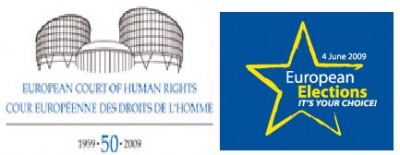
Ten Years of ECHR : 1998 - 2008 show need of Revival in 2009-2010 coinciding with 2009 EU Election
A threefold, coordinated move by new Top French Political actors in the 2009 EU Parliament Elections, expressed in Strasbourg a will to boost Europe's Political dimension close to Citizens' concerns, going from protection of Economy to defence of Human Rights.
The move met an exceptional ECHR's call for a "revival" of Human Rights' protection mechanism', in a Mega-Conference, early 2010.
Obviously focusing on June 2009 Elections to EU Parliament, it involved from the outset the recently nominated "dual" Head of French Governing Party (UMP) Michel BARNIER and Rachida DATI :
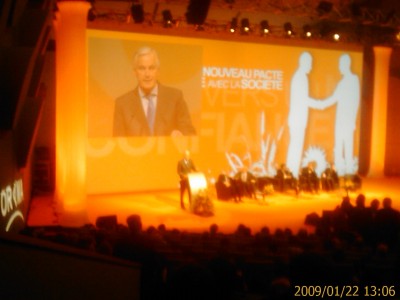
- "As President Sarkozy has clearly said, we (France) are in favor of a Strong, Sovereign and Independent, Political Europe, which protects its Citizens, and not for a large Super-Market, nor for a Europe under influence",
"This goes for everything, including Energy", added to "EuroFora" the experienced former EU Commissioner, Minister of Foreign affairs, currently of Agriculture and Sarkozy's new pick as Leader of the Governing party UMP to EU 2009 Election, Michel BARNIER .
- Human Rights are important because they are at the Heart of the Political Europe that we aspire for : I.e. a Europe able to act and protect its Citizens, stressed also the New French Minister for European affairs, Bruno LE MAIRE, while meeting Strasbourg's Journalists at his first visit to the CoE.
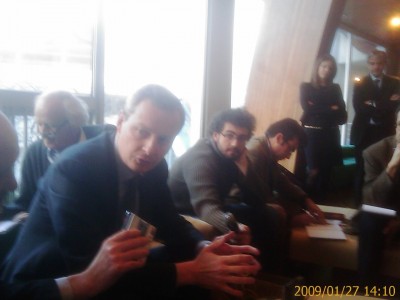
This is one of the main interests for CoE, which is also a natural place for cooperation between EU countries and Russia or Turkey, which was recently helpful at the Middle East crisis, he added.
The move gained momentum with French Minister of Justice, Rachida Dati's main observations at ECHR's 5Oth Anniversary :
- "While we are seeking Europe's Borders and Identity, you (ECHR) remind us also of its Values", Human Rights, Dati noted.
Citizens seek more and more often ECHR's help, and the tempo accelerates, Europa awaits a symbol, while national legal orders are not freezed
And she expressed "support" to ECHR President Jean-Paul Costa's call to satisfy the vital need to revigorate the PanEuropean Court by deciding big changes at a High-Level Conference open to a large audience, a kind of "Etats Generaux" of Human Rights, at the beginning of 2010.
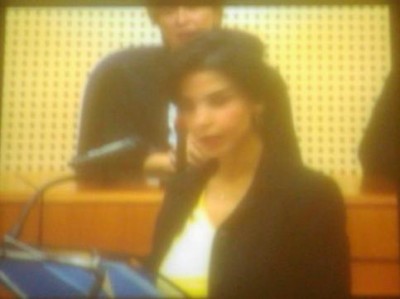
It's not so much the recently growing number of applications for Russia or Ukraine etc, which seems to be Costa's main concern : In fact, the cases declared "admissible" are much fewer...
But rather the persistent violations of Human Rights, sometimes very grave (ie. murders, torture, abritrary deprivation of liberty, oppression of freedom of speech, destructions of homes/properties, etc), despite numerous, repeated condemnations by ECHR. So that CoE's Ministers, due to "supervise execution" of ECHR's judgements, are overloaded.
F.ex. most Media noted that Turkey still remains, even in 2008, the 1st among 47 CoE member States in the number of condemnations by ECHR : 257, compared to 233 for Russia, with a population more than the double..
The problem is that it's not the 1st time at all : During all the last Decade 1998-2008, Turkey was condemned by ECHR much more than any other State, and for particularly grave violations :
- 1.652 condemnations, compared to 605 for Russia, 548 for Poland, 494 for France, 476 for Ukraine, etc.
Italy's second place with 1.394 condemnations is a misleading false appearance : In fact, most of them (999) concern mere "procedural delays" in national courts. Same for France.
On the contrary, Turkey was condemned 180 times for Killings, 192 times for Torture or Inhuman/Degrading treatments, 340 times for arbitrary deprivation of Liberty, 528 times for "Unfair trial", and 169 times for oppression of Freedom of speech, (etc). And the latest, 2008 numbers, indicate no change in this trend, (See supra).
The current Spanish CoE Presidency (November 2008 - May 2009) has made of the implementation of ECHR's judgements its 1st Priority.
ECHR's President, Jean-Paul Costa, stressed in its 2009 Annual Press Conference, CoE Member States' obligation to implement the judgements, according to Article 46 of the European Convention on Human Rights.
Moreover, if CoE's Committee of Ministers delays to ensure implementation, then, the repetition of violations in similar cases provokes a multiplication of complaints tabled to the Court, which overload the mecanism for the protection of Human Rights, denounced Costa.
A series of Debates on "the situation of Human Rights in Europe", focusing on the "need to fight against Impunity" of perpetrators of grave crimes, is currently prepared by CoE's Parliamentary Assembly for the session of June 2009.
The final Timing comes shortly AFTER the EU Elections, but the main Reports should have been adopted before.
Meanwhile, French President Sarkozy and German Chancelor Merkel's recent call "for a Political Europe" in 2009 EU Elections (See earlier "correspondence from Paris, Elysee Palace), seems more and more endorsed also by other EU Countries' Top MEPs :
Thus, f.ex., EU Parliament's 1st vice-President, Greek MEP Mrs Rodi KRATSA, speaking to "EuroFora", agreed that 2009 EU Election would be a "naturally good" opportunity to debate what really interests EU Citizens : "The Future of a Political Europe, able to face the Economic Crisis, with a Culture and identity which attracts the People"
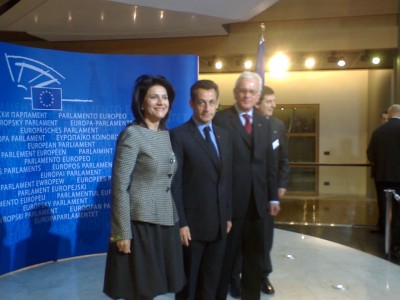
(Photo taken earlier during Sarkozy's 1st visit at EU Parliament, in 2007 : Sarkozy and Merkel's Ideas for a Political Europe inspire also other EU politicians accross the continent)...


















